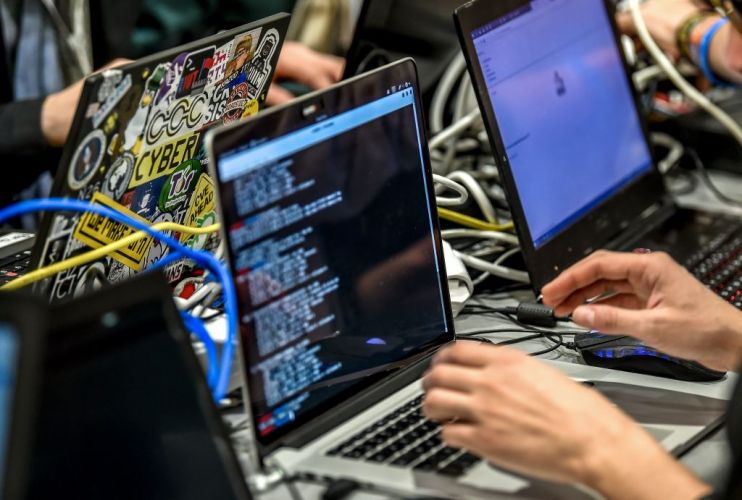Cyber success is vital to the UK’s future

From the Bletchley Park codebreakers to Tim Berners-Lee and the invention of the World Wide Web, the UK has a rich heritage of computing technologies.
We see this pedigree coming through in our cyber businesses. Take Darktrace, the UK’s first cyber firm valued at over £1bn, which is changing the way businesses protect critical data
systems and digital infrastructures using artificial intelligence.
Or Belfast-based Cyphra, which minimises cyber risk for clients. There is also a leading Scottish cyber firm Cyan Forensics, which gives police the tools to carry out cutting-edge digital forensic investigations.
A new report today reveals a boom in the UK’s cybersecurity sector’s annual revenue, a significant rise in jobs and increasing investment.
It shows there has never been greater demand for their products and services. There are now more people in cyber-focused roles than ever before, with 43,000 full-time employees in the industry, up 37 per cent since 2017.
The number of cybersecurity firms has almost doubled since 2017 to more than 1,200 in 2019. This growth is equivalent to a new cybersecurity business being set up every week. And revenue reached an estimated £8.3bn last year and contributed £3.7bn to the economy.
The figures shine a light on how varied our cyber sector is with the growth of emerging specialist sub-sectors. The increase in the number of services and products focused on Internet of Things (IoT) security is a prime example.
Cambridge-based Secure Thingz provides advanced security for industrial IoT, protecting areas such as manufacturing, the automotive industry and critical infrastructure.
We are increasingly seeing more of our daily lives connected to the internet — from fridges to smartwatches and even children’s toys, but the current security standards of many of these devices are low and the security and privacy risks are too great.
New rules for tech devices
Earlier this week I announced new legislation to hold firms manufacturing and stocking internet-connected devices to account.
These new laws will mean consumers are protected from devices which do not adhere to the three rigorous security requirements we’ve developed alongside a code of practice.
These measures will mean all the passwords pre-programmed in internet-connected devices must be unique and not resettable to any universal factory setting.
They will place a responsibility on manufacturers of consumer IoT devices that they must make sure a public point of contact is always available as part of a disclosure policy so any security vulnerabilities found with the device can be reported quickly.
They will require manufacturers to state the minimum length of time for which the device will receive security updates at the point of sale, either in store or online, meaning people can make the most informed purchasing decisions.
This is an important part of our plans to make the UK a true world leader in digital technology where regulation gives consumers confidence and firms clear guidance.
The study out today shows new cybersecurity tech hubs rapidly growing across the country. North-west England, Scotland, Wales and Northern Ireland collectively secured 20 per cent of the industry’s investment deals over the last four years.
I am committed to spreading this prosperity so everyone with the talent and aptitude has the opportunity to succeed regardless of where they live.
Through our Cyber101 programme we are delivering training boot camps across the country — most recently in Newcastle, Edinburgh, Birmingham and Newport — and we have invested over £2m to narrow the gap between academia and business though the Cyber Academic Startup Accelerator Programme.
This supports academics from around the country to commercialise their research and set-up companies.
Our Cyber Skills Immediate Impact Fund provides opportunities for people from a range of backgrounds to move into a career in the country’s rapidly expanding cybersecurity sector.
So far, more than 150 people have been placed into jobs through training initiatives in cities such as Plymouth, Manchester and Leeds. We also need to make sure the sector has a strong pipeline of diverse talent for years to come.
My department is backing the NCSC’s fantastic CyberFirst Girls Competition, which provides a fun but challenging environment to inspire the next generation of young women to consider a career in cybersecurity.
We are working hard to make sure the UK is the safest place to live and work in our increasingly digital world, and my department will carry on collaborating with industry and academia to build on this tremendous growth.
Matt Warman is digital minister and MP for Boston and Skegness